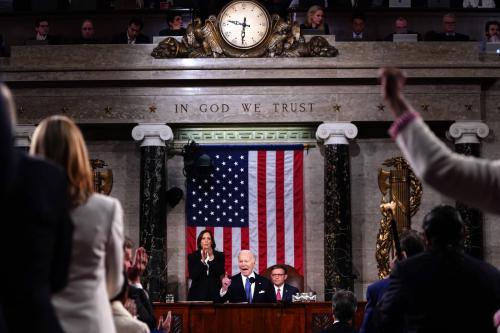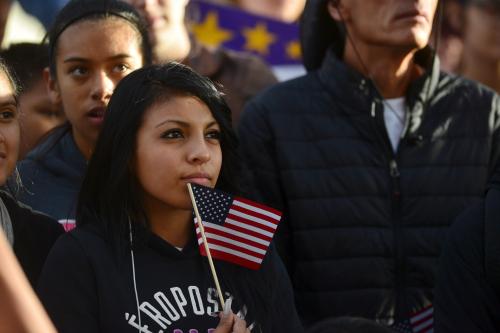In a new paper, Marisa Abrajano describes how immigration may have a jarring and long-term effect on American politics. The paper, based on Abrajano and Zoltan Hajnal’s forthcoming book White Backlash: Immigration, Race, and American Politics, offers a unique take on the effects demographics will have on partisan alignment, social policy, and electoral outcomes.
Abrajano’s paper argues that while many observers note that increases in the Latino population (and Latinos’ growing allegiance to the Democratic Party) point to good news for Democrats’ electoral prospects, that analysis may be incorrect. She argues that Latino population growth, Democratic Party responsiveness to specific policies, and media’s issue framing such as “Latino threat” could continue to drive white voters toward the Republican Party.
The paper discusses the history of white flight away from the Democratic Party and toward the Republican Party. Abrajano explains that if white native-born Americans—and particularly voters—see immigrants and the politics surrounding immigration as a threat, that threat can “shape…fundamental and stable political attachments” like party affiliation.
Immigration is a powerful issue. It has the ability to shape not just what society looks like. It can influence how society responds to public policy needs.
Often researchers and observers are skeptical of the power of immigration issues on long term political trends. In fact, Abrajano notes that thus far, “there is little direct evidence that immigration has had an enduring impact on the basic political decisions of the white majority.” Despite that, she explains that “immigration and the Latino population do impact whites’ core political calculus” and as a new racial politics emerges, no longer based in a black-white dichotomy, the effects on American politics may be monumental.
Click to read “Will Immigration Spark a White Backlash in America?”



Commentary
Immigration May Change American Politics As We Know It
July 31, 2014